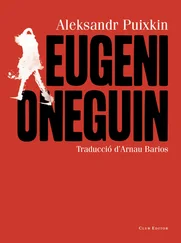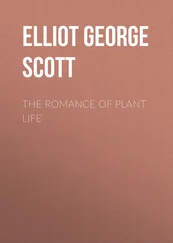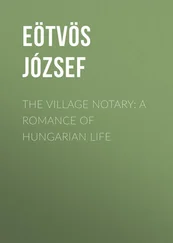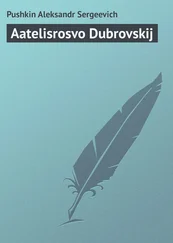Aleksandr Pushkin - Eugene Oneguine [Onegin]. A Romance of Russian Life in Verse
Здесь есть возможность читать онлайн «Aleksandr Pushkin - Eugene Oneguine [Onegin]. A Romance of Russian Life in Verse» весь текст электронной книги совершенно бесплатно (целиком полную версию без сокращений). В некоторых случаях можно слушать аудио, скачать через торрент в формате fb2 и присутствует краткое содержание. Год выпуска: 2007, Жанр: Поэзия, на английском языке. Описание произведения, (предисловие) а так же отзывы посетителей доступны на портале библиотеки ЛибКат.
- Название:Eugene Oneguine [Onegin]. A Romance of Russian Life in Verse
- Автор:
- Жанр:
- Год:2007
- ISBN:нет данных
- Рейтинг книги:4 / 5. Голосов: 1
-
Избранное:Добавить в избранное
- Отзывы:
-
Ваша оценка:
- 80
- 1
- 2
- 3
- 4
- 5
Eugene Oneguine [Onegin]. A Romance of Russian Life in Verse: краткое содержание, описание и аннотация
Предлагаем к чтению аннотацию, описание, краткое содержание или предисловие (зависит от того, что написал сам автор книги «Eugene Oneguine [Onegin]. A Romance of Russian Life in Verse»). Если вы не нашли необходимую информацию о книге — напишите в комментариях, мы постараемся отыскать её.
Eugene Oneguine [Onegin]. A Romance of Russian Life in Verse — читать онлайн бесплатно полную книгу (весь текст) целиком
Ниже представлен текст книги, разбитый по страницам. Система сохранения места последней прочитанной страницы, позволяет с удобством читать онлайн бесплатно книгу «Eugene Oneguine [Onegin]. A Romance of Russian Life in Verse», без необходимости каждый раз заново искать на чём Вы остановились. Поставьте закладку, и сможете в любой момент перейти на страницу, на которой закончили чтение.
Интервал:
Закладка:
IV
But I abandoned their array,
And fled afar—she followed me.
How oft the kindly Muse away
Hath whiled the road's monotony,
Entranced me by some mystic tale.
How oft beneath the moonbeams pale
Like Leonora did she ride [82] See Note 30, "Leonora," a poem by Gottfried Augustus Burger, b. 1748, d. 1794.
With me Caucasian rocks beside!
How oft to the Crimean shore
She led me through nocturnal mist
Unto the sounding sea to list,
Where Nereids murmur evermore,
And where the billows hoarsely raise
To God eternal hymns of praise.
V
Then, the far capital forgot,
Its splendour and its blandishments,
In poor Moldavia cast her lot,
She visited the humble tents
Of migratory gipsy hordes—
And wild among them grew her words—
Our godlike tongue she could exchange
For savage speech, uncouth and strange,
And ditties of the steppe she loved.
But suddenly all changed around!
Lo! in my garden was she found
And as a country damsel roved,
A pensive sorrow in her glance
And in her hand a French romance.
VI
Now for the first time I my Muse
Lead into good society,
Her steppe-like beauties I peruse
With jealous fear, anxiety.
Through dense aristocratic rows
Of diplomats and warlike beaux
And supercilious dames she glides,
Sits down and gazes on all sides—
Amazed at the confusing crowd,
Variety of speech and vests,
Deliberate approach of guests
Who to the youthful hostess bowed,
And the dark fringe of men, like frames
Enclosing pictures of fair dames.
VII
Assemblies oligarchical
Please her by their decorum fixed,
The rigour of cold pride and all
Titles and ages intermixed.
But who in that choice company
With clouded brow stands silently?
Unknown to all he doth appear,
A vision desolate and drear
Doth seem to him the festal scene.
Doth his brow wretchedness declare
Or suffering pride? Why is he there?
Who may he be? Is it Eugene?
Pray is it he? It is the same.
"And is it long since back he came?
VIII
"Is he the same or grown more wise?
Still doth the misanthrope appear?
He has returned, say in what guise?
What is his latest character?
What doth he act? Is it Melmoth, [83] romance by Maturin.
Philanthropist or patriot,
Childe Harold, quaker, devotee,
Or other mask donned playfully?
Or a good fellow for the nonce,
Like you and me and all the rest?—
But this is my advice, 'twere best
Not to behave as he did once—
Society he duped enow."
"Is he known to you?"—"Yes and No."
IX
Wherefore regarding him express
Perverse, unfavourable views?
Is it that human restlessness
For ever carps, condemns, pursues?
Is it that ardent souls of flame
By recklessness amuse or shame
Selfish nonentities around?
That mind which yearns for space is bound?
And that too often we receive
Professions eagerly for deeds,
That crass stupidity misleads,
That we by cant ourselves deceive,
That mediocrity alone
Without disgust we look upon?
X
Happy he who in youth was young,
Happy who timely grew mature,
He who life's frosts which early wrung
Hath gradually learnt to endure;
By visions who was ne'er deranged
Nor from the mob polite estranged,
At twenty who was prig or swell,
At thirty who was married well,
At fifty who relief obtained
From public and from private ties,
Who glory, wealth and dignities
Hath tranquilly in turn attained,
And unto whom we all allude
As to a worthy man and good!
XI
But sad is the reflection made,
In vain was youth by us received,
That we her constantly betrayed
And she at last hath us deceived;
That our desires which noblest seemed,
The purest of the dreams we dreamed,
Have one by one all withered grown
Like rotten leaves by Autumn strown—
'Tis fearful to anticipate
Nought but of dinners a long row,
To look on life as on a show,
Eternally to imitate
The seemly crowd, partaking nought
Its passions and its modes of thought.
XII
The butt of scandal having been,
'Tis dreadful—ye agree, I hope—
To pass with reasonable men
For a fictitious misanthrope,
A visionary mortified,
Or monster of Satanic pride,
Or e'en the "Demon" of my strain. [84] The "Demon," a short poem by Pushkin which at its first appearance created some excitement in Russian society. A more appropriate, or at any rate explanatory title, would have been the Tempter . It is descriptive of the first manifestation of doubt and cynicism in his youthful mind, allegorically as the visits of a "demon." Russian society was moved to embody this imaginary demon in the person of a certain friend of Pushkin's. This must not be confounded with Lermontoff's poem bearing the same title upon which Rubinstein's new opera, "Il Demonio," is founded.
Oneguine—take him up again—
In duel having killed his friend
And reached, with nought his mind to engage,
The twenty-sixth year of his age,
Wearied of leisure in the end,
Without profession, business, wife,
He knew not how to spend his life.
XIII
Him a disquietude did seize,
A wish from place to place to roam,
A very troublesome disease,
In some a willing martyrdom.
Abandoned he his country seat,
Of woods and fields the calm retreat,
Where every day before his eyes
A blood-bespattered shade would rise,
And aimless journeys did commence—
But still remembrance to him clings,
His travels like all other things
Inspired but weariness intense;
Returning, from his ship amid
A ball he fell as Tchatzki did. [85] Tchatzki, one of the principal characters in Griboyedoff's celebrated comedy "Woe from Wit" ( Gore ot Ouma ).
XIV
Behold, the crowd begins to stir,
A whisper runs along the hall,
A lady draws the hostess near,
Behind her a grave general.
Her manners were deliberate,
Reserved, but not inanimate,
Her eyes no saucy glance address,
There was no angling for success.
Her features no grimaces bleared;
Of affectation innocent,
Calm and without embarrassment,
A faithful model she appeared
Of "comme il faut." Shishkoff, forgive!
I can't translate the adjective. [86] Shishkoff was a member of the literary school which cultivated the vernacular as opposed to the Arzamass or Gallic school, to which the poet himself and his uncle Vassili Pushkin belonged. He was admiral, author, and minister of education.
Интервал:
Закладка:
Похожие книги на «Eugene Oneguine [Onegin]. A Romance of Russian Life in Verse»
Представляем Вашему вниманию похожие книги на «Eugene Oneguine [Onegin]. A Romance of Russian Life in Verse» списком для выбора. Мы отобрали схожую по названию и смыслу литературу в надежде предоставить читателям больше вариантов отыскать новые, интересные, ещё непрочитанные произведения.
Обсуждение, отзывы о книге «Eugene Oneguine [Onegin]. A Romance of Russian Life in Verse» и просто собственные мнения читателей. Оставьте ваши комментарии, напишите, что Вы думаете о произведении, его смысле или главных героях. Укажите что конкретно понравилось, а что нет, и почему Вы так считаете.











